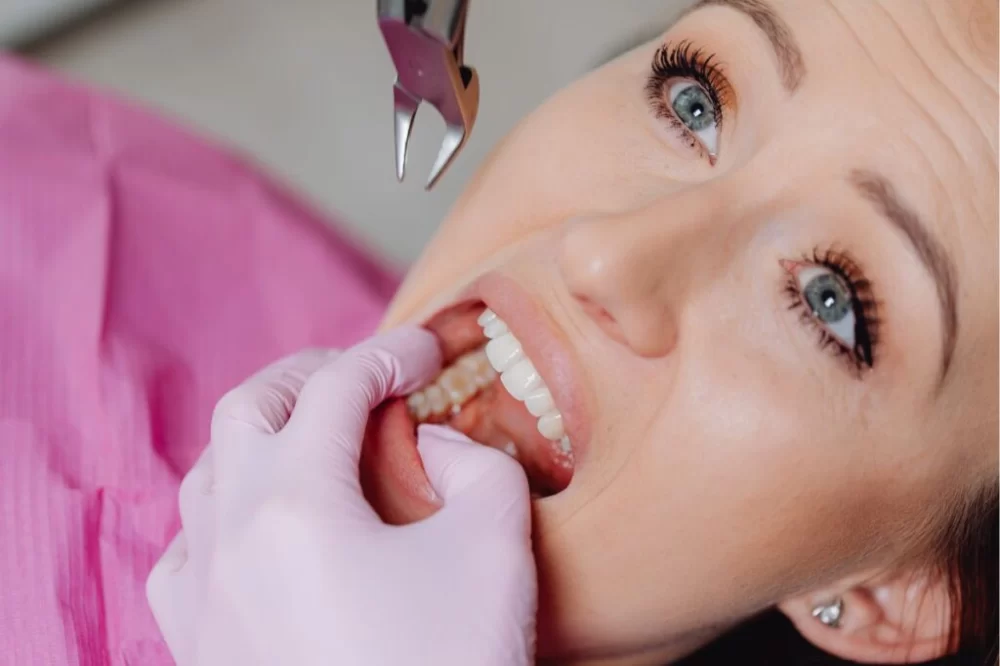
Essential Steps to Prevent Infections After a Dental Extraction
Undergoing a dental extraction, whether it’s for a regular tooth or wisdom teeth, can be a daunting experience. After the procedure, one of the main concerns that patients face is the risk of infection at the extraction site. While it’s completely normal for the area to feel tender and sore after the extraction, ensuring that the site remains clean and free from bacteria is crucial for a smooth recovery. In this article, we’ll provide detailed, practical tips on how to avoid infections after a dental extraction, and what to do if you suspect any signs of infection.
1. Follow Your Dentist’s Aftercare Instructions Carefully
One of the best ways to avoid complications such as infections after a dental extraction is to follow your dentist’s aftercare instructions carefully. Your dentist will provide guidelines based on the specifics of your procedure, including medication prescriptions, dietary recommendations, and follow-up appointments. These instructions are essential for your healing process and can significantly reduce the risk of developing an infection. Make sure to ask any questions you might have about the recovery process to ensure you're doing everything right.
2. Keep the Extraction Site Clean
Maintaining good oral hygiene is essential in preventing infections. However, it's important to avoid brushing the extraction site directly for the first 24 hours. Gently rinse your mouth with warm salt water starting the day after the extraction. This helps clean the area and promotes healing. Saltwater can also help reduce swelling and inflammation, further preventing any infection. Avoid using mouthwash with alcohol, as it can irritate the healing tissues.
3. Avoid Touching the Extraction Area
It’s tempting to touch or poke the extraction site with your fingers or tongue, but this can introduce bacteria to the wound and increase your risk of infection. Make sure to avoid touching the area, especially with unwashed hands. Keep your hands clean and try to keep your tongue from irritating the site as well.
4. Don’t Smoke or Use Tobacco Products
If you're a smoker, it’s important to refrain from smoking for at least 72 hours after the extraction. Smoking increases the risk of infection and can slow down the healing process. The suction created while smoking can dislodge the blood clot that forms at the extraction site, leading to a condition called dry socket. This condition is not only painful but can also expose the bone to bacteria, increasing the risk of infection.
5. Apply Ice Packs to Reduce Swelling
Swelling is common after a dental extraction, especially in the first 48 hours. Applying an ice pack to the outside of your cheek near the extraction site can help reduce swelling and discomfort. This also minimizes the risk of complications that can arise from excessive swelling, which might cause poor healing conditions and lead to infection. Be sure to wrap the ice pack in a cloth to avoid direct contact with the skin, and apply it in 15-20 minute intervals.
6. Rest and Avoid Physical Activity
Proper rest is crucial for your recovery after a dental extraction. Avoid strenuous physical activities, including exercise, for at least a few days. Physical exertion can increase blood pressure, which may cause more bleeding or dislodge the blood clot at the site, exposing the wound to bacteria. Take it easy during the first few days to allow your body to focus on healing.
7. Take Your Prescribed Antibiotics
If your dentist prescribes antibiotics after the extraction, it’s crucial to take them as directed. Antibiotics help prevent infections by eliminating harmful bacteria. Don’t stop taking them prematurely, even if you feel fine. Make sure to complete the entire course of antibiotics to prevent any remaining bacteria from causing an infection.
8. Be Mindful of What You Eat and Drink
Immediately after the extraction, stick to soft foods and liquids that require minimal chewing. Avoid hot or spicy foods that could irritate the extraction site. Additionally, stay away from hard, crunchy foods that could potentially dislodge the blood clot or cause injury to the healing tissues. Also, avoid drinking through a straw in the first few days, as the suction can interfere with the clotting process and increase the risk of infection.
9. Watch for Signs of Infection
Even with the best care, sometimes infections can occur. It’s essential to be aware of any signs that may indicate an infection at the extraction site. Common symptoms include increased pain, swelling, redness, pus discharge, or a foul odor from the extraction area. If you notice any of these symptoms, it’s crucial to contact your dentist immediately for evaluation and treatment.
10. Attend Your Follow-Up Appointment
Your dentist will likely schedule a follow-up appointment after your dental extraction to check on the healing process. It’s important to attend this appointment to ensure everything is healing correctly. If there are any issues, your dentist can address them right away, minimizing the chances of complications and infections.
Real-Life Example: John’s Wisdom Tooth Extraction
John, a 32-year-old teacher, had been putting off getting his wisdom teeth removed for years. One evening, he developed severe pain in his upper jaw, and the dentist recommended immediate extraction. After the procedure, John followed his dentist’s advice carefully: he kept his extraction site clean, rested properly, and avoided smoking. However, three days into his recovery, John started feeling a sharp pain that radiated from the extraction site, along with swelling and a bad taste in his mouth. Concerned, he called his dentist. Upon inspection, it turned out that John had developed an infection. Thankfully, he was able to begin treatment quickly, preventing further complications. His dentist prescribed antibiotics, and with a little more care, John healed without any long-term problems.
John’s experience serves as a reminder that while most people heal without issue, it’s essential to stay vigilant and aware of potential problems during the recovery process.
Final Thoughts on Post-Extraction Care
Dental extractions, whether for regular teeth or wisdom teeth, require careful attention during the recovery process. By following your dentist’s instructions, keeping the extraction site clean, and avoiding harmful habits like smoking, you can greatly reduce the risk of infection. If any signs of infection do arise, prompt action and professional care can ensure a smooth recovery. With proper care, your mouth will heal in no time, and you’ll be back to your regular routine pain-free.







 Guiffre Mears & Powell5.0 (5 review)
Guiffre Mears & Powell5.0 (5 review) McCabe Orthodontics4.0 (14 review)
McCabe Orthodontics4.0 (14 review) Songstad Dental Group5.0 (425 review)
Songstad Dental Group5.0 (425 review) Lakebrink-Mitts Dental - Dr. Thomas G. Lakebrink, Dr. D. Alexander Mitts, Dr. Ise d'Angelo, Dr. Nika d'Angelo5.0 (1390 review)
Lakebrink-Mitts Dental - Dr. Thomas G. Lakebrink, Dr. D. Alexander Mitts, Dr. Ise d'Angelo, Dr. Nika d'Angelo5.0 (1390 review) Cornerstone Endodontics4.0 (288 review)
Cornerstone Endodontics4.0 (288 review) Henry J. Austin Health Center at Ewing Street3.0 (33 review)
Henry J. Austin Health Center at Ewing Street3.0 (33 review) The Importance of Oral Health Education During Pregnancy for a Healthy Pregnancy
The Importance of Oral Health Education During Pregnancy for a Healthy Pregnancy Best Tips for Brushing Your Teeth Properly for Healthy Gums: Essential Techniques for Oral Health
Best Tips for Brushing Your Teeth Properly for Healthy Gums: Essential Techniques for Oral Health Why Skipping Dental Checkups Can Lead to Bigger Oral Health Problems
Why Skipping Dental Checkups Can Lead to Bigger Oral Health Problems Advantages of Porcelain Dental Restorations
Advantages of Porcelain Dental Restorations How Can Diabetes Cause Tooth and Gum Problems? Preventing and Managing Oral Health Issues
How Can Diabetes Cause Tooth and Gum Problems? Preventing and Managing Oral Health Issues Healthy Habits for Promoting Good Oral Health and Hygiene: Tips for a Healthy Smile
Healthy Habits for Promoting Good Oral Health and Hygiene: Tips for a Healthy Smile